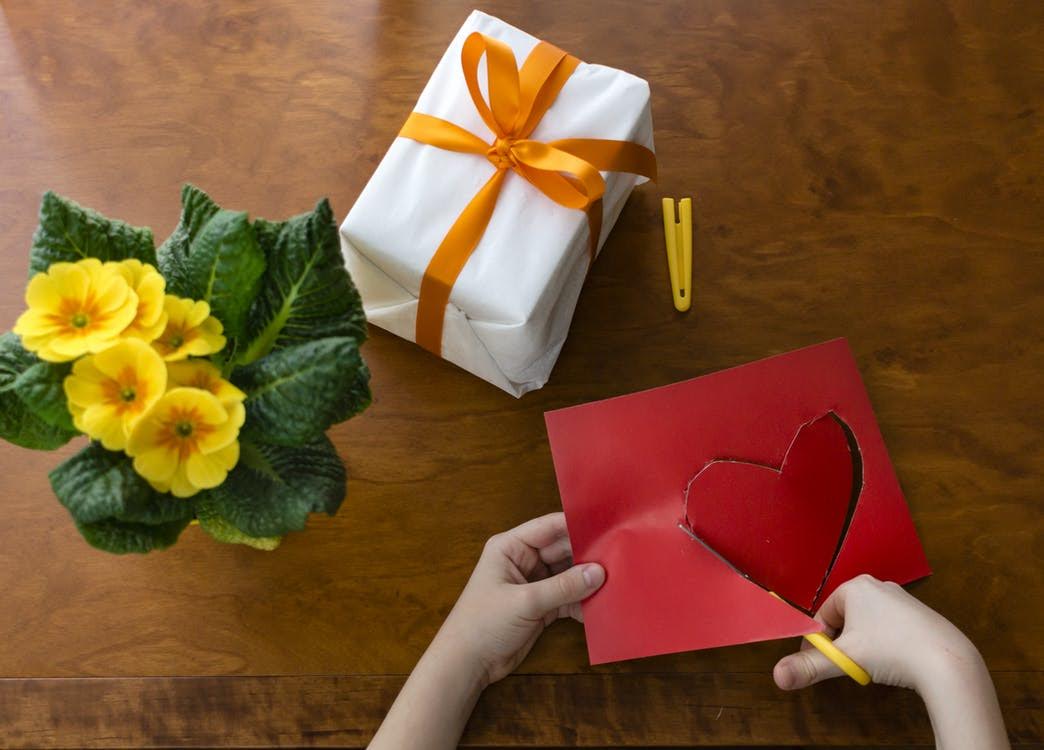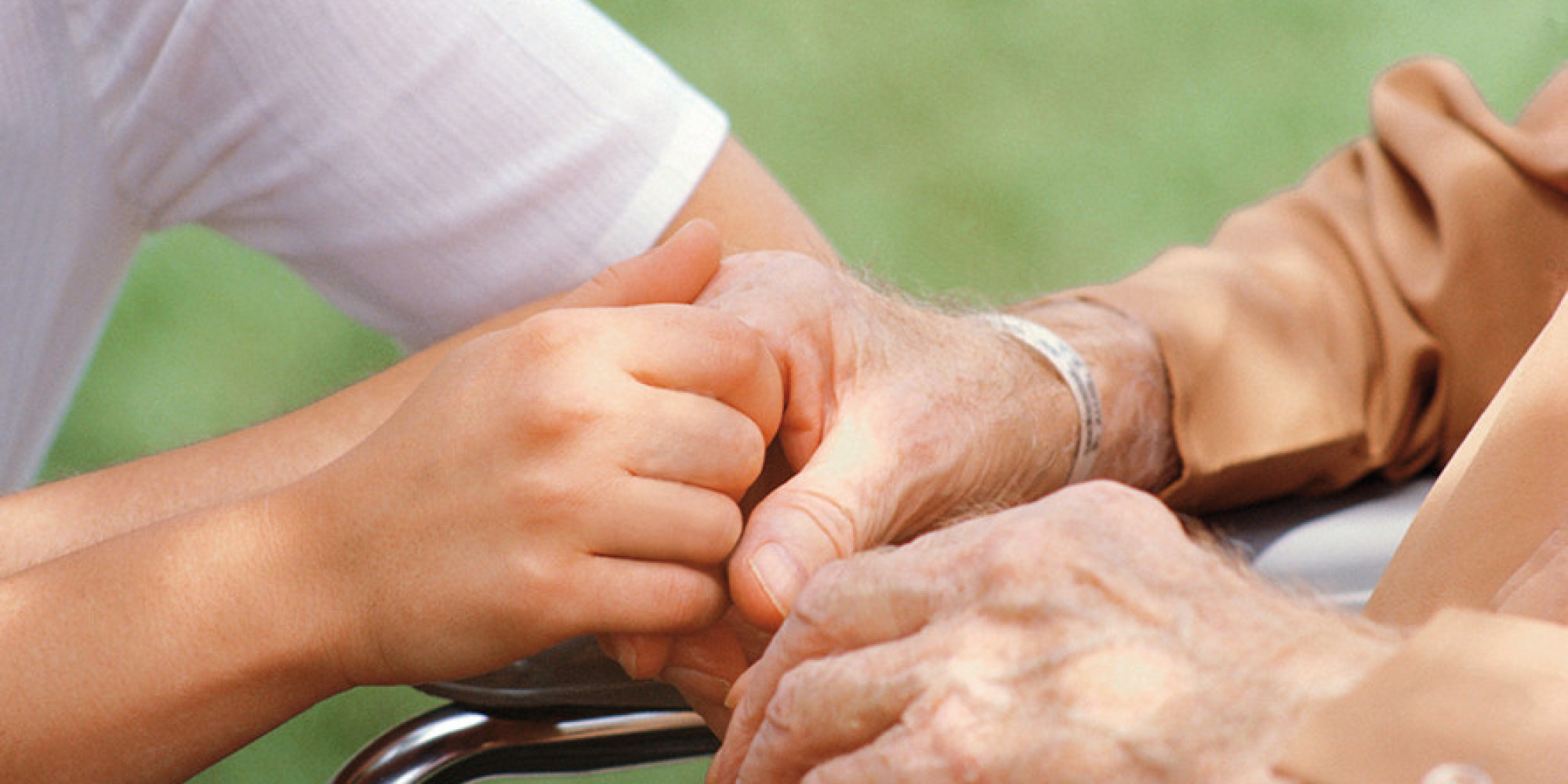A couple Christmases ago, I really stepped in it.
My father-in-law Sam* was dying of cancer. He accepted he was dying. The family accepted he was dying. Even as death pulled the flesh from his bones and the memories from his head, Sam lived for the people he chose to love. And the occasional extra dry martini.
Sam was the champion of the pithy, “deathy” one-liner. I think he saw it as a way to put the rest of us at ease while letting us know he was “in on it”. When he’d catch one of us getting that “Precious Moments” look in our eyes – overly sentimental, googley, tears threatening – he’d roar with some crass joke about adult diapers or how we’d never get his gold because he planned to take it with him in a very large (and very heavy) casket. (No, Sam didn’t really have a bunch of gold. He wasn’t a pirate, people.)
When Christmas neared, a holiday he loved, my husband and I worried about what to give him. Sam loved gifts. He loved giving them, he loved receiving them, he loved searching for them on his beloved Amazon. When he found out that I couldn’t eat gluten many years ago, finding me gluten-free cookbooks became a pastime of his. But knowing that this would likely be Sam’s last Christmas, maybe his last few months of life, what should we give him?
In the past we’d given him cooking paraphernalia – gadgets he wanted, rare spices he coveted, kooky aprons, subscriptions to food magazines. Things he could look forward to cooking with for years to come. But now, since the cancer had robbed him of his ability to stand for long periods, as well as his ability to taste anything but very sweet or very salty, giving him that grill master starter set he talked about was just cruel.
I looked on the Internet, with such search parameters as, “gifts, dying loved one”. While there were some good ideas, not many seemed to fit Sam. A memory book, “the gift of togetherness”, donations to Sam’s favorite charities so that they might “live on” after him.
While these may be right for and appreciated by a lot of people – my intent is not to throw shade on people’s experiences and good will – many of the suggestions I read seemed too maudlin for him. They all seemed to fly in the face of Sam’s demand that NORMAL LIFE CARRY ON. That was his greatest Christmas wish. But how do you wrap that up in reindeer paper and put it under the tree?
While a cozy quilt for him to snuggle up with in bed or in his chair seemed like a good idea in theory, he already had blankets he liked. Dying did not steal Sam’s practical side. I can only imagine his face if I gave him a quilt. I can hear him saying, “You’re giving me…a death blankie?”
In retrospect, I think I overthought it. All my death positive comfort with talking death didn’t prepare me for the living side of dying. Sam did not deny his dying, but looking back I think I was grabbing at a way to do it for him. It’s hard for me to admit now. Until you watch someone you love slowly die, it’s hard to understand how tempting and easy it is for death denial to creep into your actions.
I rationally accepted Sam’s death, but my emotional side, my attachment to Sam and his presence in my life, made me grasp impotently at ways to make him not really be dying; to hold on a little longer. It blew up in my face. My death denial not only threw Sam’s dying in his face, it made him feel lonely.
When he eagerly opened my gifts amidst the excitement of the family and grandchildren opening theirs, his face fell. He furrowed his brown. He smiled at me with love and appreciation, but there wasn’t enthusiasm behind it. It was forced.
I’d chosen to give him a bunch of small gifts that I figured he could enjoy now not later. Small packages of favorite delicacies – smoked abalone, his favorite candies he’d often mentioned he could rarely find anymore, other edible treats that his illness still allowed him to relish. I also enclosed a note, a heartfelt outpouring of what he meant to me.
Before some of you come to my defense, as many have when I’ve retold this story, or come to the defense of such gifts, know that it wasn’t so much the items but what it transmitted to Sam. Inadvertently the items, and maybe more the note, communicated to Sam that somehow I’d pulled away. You’re dying, here are the shadows of the gifts I would actually have given you if I knew your life was not ending soon.
In my attempt to “fix” the unfixable situation of his death, I had given him things that felt “safe”. I had put on the brakes. In effect, the gifts were, to put it plainly, weird. The embodiment of flailing in the face of grief; not the sense of continuity and normalcy he craved. Even while I had wrapped those gifts, my gut knew better. But I ignored what I knew of Sam and the guidance Sam had given me in favor of my own comfort.
Many people have said I’m being too hard on myself. Our relationship was not destroyed or even really altered by those gifts. Maybe I am being too overwrought and self-flagellating. But when Sam looked at the assortment of edible trinkets I’d given him, his loneliness was palpable. I will never forget his withdrawn face as he quietly put the gifts into the basket on his walker. He was with me, with his loved ones, but he was not with us.
I know I didn’t do that to him. But I helped to take him out of the moment, and the pain I brought to his attention haunts me. Maybe it’s not rational, it’s indicative of some greater anxiety I need to confront, but it’s the truth.
Dying is lonely. When we who are not actively dying must stand with our loved ones who are dying, we feel the responsibility and the desire to make it less lonely for them. We can only do this to some extent. But we can exacerbate it, even with the greatest of intentions. Often with the greatest of intentions.
The moment with the gifts was fast. As quickly as it happened, it was over. The rest of Christmas was unremarkable in its joy. In that regard, I think Sam got his wish.
Months after his death, I was visiting my husband’s childhood home, the home that Sam and his partner shared, and I came across a box of Sam’s stuff in the laundry room. In it was a book he had been reading, his glasses, and most of the gifts I’d given him. Unopened, untouched. The candies however, were gone. I hope he enjoyed them, that they were a taste of normal.
I don’t offer this story as instruction. What happened with Sam was something I struggled to put into words. What was or was not right for him, is not an indication of what is right or not right for another person in the same situation. But it was something I felt totally unprepared for. Something that I suspect few people actually are prepared for.
I’ve come to learn that that was and is no crime. Being death positive does not mean having all the answers or being impervious to mistakes in handling death and dying. Perhaps it means we choose to grapple with discomfort in a way that culture generally does not condone.
I’m still grappling.
I don’t know what I would have done differently. In thinking about what would have been better, a more suitable gift for Sam, I still come up empty. Sometimes I wonder if I should have just given him the kitchen gadgets I knew he wanted, despite my fear that it would be hurtful. I think so many of the missteps I made during Sam’s dying, this and others, came from me being too much in my head; worried about my issues. I knew what Sam wanted, but I second guessed him.
Gift-giving in the shadow of death can be such a bitter-sweet act, maybe an act that demands a kind of selflessness many of us are ill-equipped to process. I know that for me, I confused how much a person treasures something with the length of time they treasure it.
Have any of you ever had to give gifts, either during the holidays or for other occasions, to a dying loved one? What did you do? How did you decide what to give? How did it work out?
*Name changed to respect the family’s privacy.



